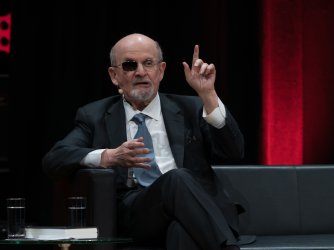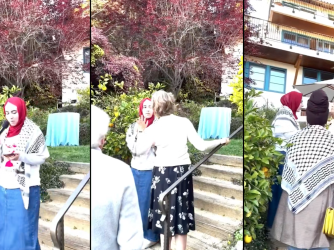Table of Contents
Pasadena City College Nixes Public Appearance of Adult Film Actor
There's been an interesting story out of Pasadena City College (PCC) this week. According to Inside Higher Ed, PCC Professor Hugo Schwyzer, as part of a course on "Navigating Pornography," invited the prominent adult film actor James Deen (who had attended classes at PCC) to deliver a guest lecture to his students this past Wednesday. Members of the general public and the media were also invited, and the lecture was promoted in the press.
What happened next? IHE reports:
While the professor teaching the course and students enrolled in it were excited about the visit (scheduled for [February 27]), some administrators reading the article didn't realize that the institution had a course about pornography. And they demanded that the professor — Hugo Schwyzer — come to an emergency meeting Tuesday. [...]
Schwyzer said in an interview that this is the second time he has taught the course, as part of a series of courses at the college that integrate humanities and social sciences topics. And he said he was told that he would have to take back the invitation he gave in the local newspaper for the public to come see the class.
Schwyzer said he was told by administrators that they believed there would be significant protests of Deen's appearance, and that the college didn't have time to prepare security. He was told he could have Deen speak today as scheduled, but only if he limited attendance to the 40 students in his class.
According to PCC, Schwyzer agreed to these terms. A statement released by PCC contended:
[N]either the instructor nor the sponsors of the event had followed the proper procedure to obtain a facilities use permit that is required of all public events. Such permits are necessary to make sure that liability insurance, facilities support, and campus security can be arranged....
[...]
"We support the instructor's academic freedom within the classroom," [assistant superintendent Robert] Bell said. "The college's concern is to schedule all public events according to procedures so we can insure public safety and security."
Just how credible is PCC's contention that the event presented significant safety concerns? My guess would be: not very. Why? Well, as Schwyzer pointed out on his personal blog, it's curious that if so many people were geared up to protest the event, no one seems to have told him:
Gail Cooper, the college's legal adviser, told me that she had received word that there might be up to "100 protestors ready to march" on the event, and that the college had decided they lacked the resources to prevent disruption. ... I told Cooper I thought it odd that none of those threats had been directed towards me.
That, indeed, is fishy, as is the fact that none of these alleged legions of protesters seemed to materialize until the PCC administration found out the event was taking place. Furthermore, the fact that people want to protest an event is not a legitimate reason to limit its attendance. If PCC is trying to use this justification to deflect the charge that its heightened scrutiny of the event was motivated by the content of the lecture, it has failed. PCC's allegation that Schwyzer didn't have all the proper paperwork in order likewise fails to satisfy on this front. As Schwyzer tells IHE, "If I invited someone to talk about the horticulture of Southern California and didn't fill out all the forms correctly, this wouldn't be happening. I find it implausible that this isn't about the content." It's hard not to agree.
Schwyzer also refuted PCC's contention that his interactions with the administration about the event constituted a "negotiation"—another strike for the PCC administration. As he wrote at his blog:
The statement says that we reached an agreement to move the event to a closed classroom. I want to make clear that there were no negotiations; I was simply told that the public event was off. This was a decision unilaterally imposed rather than negotiated.
Lastly, PCC seemed to show its hand by making plainly clear its annoyance that Schwyzer publicized the event—yet another sign that its actions here seem strongly motivated by concerns over content. As PCC's statement concludes:
Information and comments made to the press by Schwyzer were made without the advance knowledge or authorization of the college administration.
"I want to make clear that Schwyzer is expressing his own personal opinions," said Dr. Mark Rocha, PCC superintendent-president. "In no way does he speak for the college or Board of Trustees."
Of course, PCC shouldn't require professors who speak to the press to obtain "authorization" from the administration. And would PCC's president have taken this unnecessary step for a lecture by a less controversial speaker? For instance, the horticulturalist hypothesized by Schwyzer? Again, I think not.
Deen's talk did end up happening at PCC without incident, although the public was banned from attending. College is supposed to be a venue for the discussion of all kinds of topics, even controversial ones. Hopefully, the shame of interfering with this event will serve as a lesson for PCC the next time someone dares to discuss taboo topics on its campus.
Recent Articles
FIRE’s award-winning Newsdesk covers the free speech news you need to stay informed.

Salman Rushdie calls out left-wing censorship in CBS interview

Western Washington University punishes racing team for sending a photo of a penis drawing on a pizza box

No, the Berkeley Law student didn’t have a First Amendment right to interrupt the dean’s backyard party
